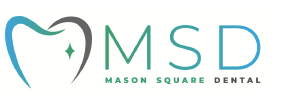
There are several effective lifestyle modifications that can significantly reduce the severity of your teeth grinding or bruxism. Making these changes can complement dental treatments like night guards and help address underlying causes to reduce the amount of grinding you currently do, these include;
Stress Management Techniques
Stress is one of the primary triggers for bruxism. Incorporating stress-reduction practices into your daily routine can make a substantial difference:
– Regular exercise releases endorphins that relax jaw muscles and reduce tension, resulting in less teeth grinding
– Meditation and mindfulness can help reduce stress and anxiety that contribute to teeth grinding
– Cognitive behavioral therapy can be effective for managing stress-related bruxism
Sleep Hygiene Improvements
Poor sleep quality and bruxism are closely linked. Improving your sleep habits can help reduce grinding episodes:
– Maintain consistent sleep schedules by going to bed and waking up at the same times daily
– Create a calming bedtime routine to signal your body it’s time to relax
– Ensure your bedroom is dark, quiet, and cool for optimal sleep quality
– Avoid using electronic devices, especially mobile phones before bedtime, as increased nighttime social media use is strongly associated with increased bruxism
Dietary Modifications
What you consume, particularly before sleep, can influence bruxism severity:
– Reduce or eliminate caffeine, especially in the afternoon and evening
– Limit alcohol consumption, as it can worsen sleep quality and increase grinding
– Avoid tobacco products, which can exacerbate bruxism
– Choose softer foods to reduce strain on your jaw muscles, especially when bruxism symptoms are active
– Consider foods rich in magnesium like leafy greens, nuts, and whole grains, which helps relax muscles
Physical Approaches
Several physical strategies can help relax your jaw muscles:
– Jaw exercises and stretches can help reduce muscle tension
– Warm compresses applied to the jaw before sleep can relax muscles
– Massage of jaw and facial muscles can help reduce tension that contributes to grinding
– Proper tongue and jaw posture throughout the day (teeth slightly apart, tongue resting on the roof of your mouth) reduces habitual clenching
Digital Detox
Modern technology use has been linked to increased bruxism:
– Limit screen time, especially before bed
– Reduce social media use at night, as studies show a strong connection between nighttime social network use and bruxism severity
– Consider using blue light filters on devices if you must use them in the evening
Addressing Underlying Conditions
Sometimes bruxism is related to other health issues:
– Treat sleep disorders like sleep apnea, which frequently co-occurs with bruxism
– Manage acid reflux, as some studies show a connection between GERD and bruxism
– Address nutritional deficiencies, particularly vitamin D and calcium, which have been linked to increased bruxism
Making these lifestyle changes requires commitment, but many patients see significant improvement in their bruxism symptoms with consistent implementation. I recommend starting with changes that feel most manageable for you and gradually incorporating others.

